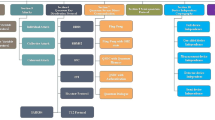Abstract
Blind signature schemes allow users to obtain the signature of a message while the signer learns neither the message nor the resulting signature. Therefore, blind signatures have been used to realize cryptographic protocols providing the anonymity of some participants, such as: secure electronic payment systems and electronic voting systems. A fair blind signature is a form of blind signature which the anonymity could be removed with the help of a trusted entity, when this is required for legal reasons. Recently, a fair quantum blind signature scheme was proposed and thought to be safe. In this paper, we first point out that there exists a new attack on fair quantum blind signature schemes. The attack shows that, if any sender has intercepted any valid signature, he (she) can counterfeit a valid signature for any message and can not be traced by the counterfeited blind signature. Then, we construct a fair quantum blind signature scheme by improved the existed one. The proposed fair quantum blind signature scheme can resist the preceding attack. Furthermore, we demonstrate the security of the proposed fair quantum blind signature scheme and compare it with the other one.

Similar content being viewed by others
References
Bennett, C.H., Brassard, G.: Quantum cryptography: Public key distribution and coin tossing. In: Proceedings of IEEE International Conference on Computers, Systems and Signal Processing, pp. 175–179 (1984)
Ekert, A.K.: Quantum cryptography based on Bell’s theorem. Phys. Rev. Lett. 67(6), 661–663 (1991)
Bennett, C.H.: Quantum cryptography using any two nonorthogonal states. Phys. Rev. Lett. 68(21), 3121–3124 (1992)
Lo, H.K., Chau, H.F.: Unconditional security of quantum key distribution over arbitrarily long distances. Science 283(5410), 2050 (1999)
Shor, P.W., Preskill, J.: Simple proof of security of the BB84 quantum key distribution protocol. Phys. Rev. Lett. 85(2), 441–444 (2000)
Mayers, D.: Unconditional security in quantum cryptography. J. ACM (JACM) 48(3), 351–406 (2001)
Gisin, N., Ribordy, G., Tittel, W., Zbinden, H.: Quantum cryptography. Rev. Mod. Phys. 74(1), 145–195 (2002)
Inamori, H., Lütkenhaus, N., Mayers, D.: Unconditional security of practical quantum key distribution. Eur. Phys. J. D 41(3), 599–627 (2007)
Nielsen, M.A., Chuang, I.L.: Quantum Computation and Quantum Information. Cambridge University Press, Cambridge (2000)
Schneier, B.: Applied Cryptography: Protocols, Algorithms, and Source Code in C. New York (1996)
Gottesman, D., Chuang, I.: Quantum Digital Signatures. ArXiv:quant-ph/0105032 (2001)
Barnum, H., Crépeau, C., Gottesman, D., Smith, A., Tapp, A.: Authentication of quantum messages. In: The 43rd Annual IEEE Symposium on Foundations of Computer Science, 2002, pp. 449–458 (2002)
Curty, M., Santos, D.J., Pérez, E., García-Fernández, P.: Qubit authentication. Phys. Rev. A 66(2), 022301 (2002)
Zeng, G., Keitel, C.H.: Arbitrated quantum-signature scheme. Phys. Rev. A 65(4), 042312 (2002)
Li, Q., Chan, W.H., Long, D.Y.: Arbitrated quantum signature scheme using Bell states. Phys. Rev. A 79(5), 054307 (2009)
Zou, X., Qiu, D.: Security analysis and improvements of arbitrated quantum signature schemes. Phys. Rev. A 82(4), 042325 (2010)
Lee, H., Hong, C., Kim, H., Lim, J., Yang, H.J.: Arbitrated quantum signature scheme with message recovery. Phys. Lett. A 321(5), 295–300 (2004)
Lü, X., Feng, D.G.: An arbitrated quantum message signature scheme. In: Computational and Information Science 2004 (CIS 2004), LNCS, vol. 3314, pp. 1054–1060. Springer (2004)
Wang, J., Zhang, Q., Tang, C.: Quantum signature scheme with message recovery. In: IEEE 8th International Conference on Advanced Communication Technology, 2006 (ICACT 2006), vol. 2, pp. 1375–1378. (2006)
Wen, X., Liu, Y., Sun, Y.: Quantum multi-signature protocol based on teleportation. Z. Naturforsch. A 62(3/4), 147 (2007)
Zeng, G., Lee, M., Guo, Y., He, G.: Continuous variable quantum signature algorithm. Int. J. Quant. Inf. 5(4), 553–573 (2007)
Yang, Y.G.: Multi-proxy quantum group signature scheme with threshold shared verification. Chin. Phys. B 17, 415 (2008)
Lu, X., Feng, D.: Quantum digital signature based on quantum one-way functions. In: The 7th International Conference on Advanced Communication Technology, 2005 (ICACT 2005), IEEE, vol. 1, pp. 514–517. (2004)
Cao, Z., Markowitch, O.: Security analysis of one quantum digital signature scheme. In: The Sixth International Conference on Information Technology: New Generations, 2009 (ITNG’09), IEEE, pp. 1574–1576. (2009)
Wen, X., Niu, X., Ji, L., Tian, Y.: A weak blind signature scheme based on quantum cryptography. Opt. Commun. 282(4), 666–669 (2009)
Wang, T.Y., Wen, Q.Y.: Fair quantum blind signatures. Chin. Phy. B 19(6), 060307 (2010)
Boykin, P.O., Roychowdhury, V.: Optimal encryption of quantum bits. Phys. Rev. A 67(4), 042317 (2003)
Gao, F., Qin, S.J., Guo, F.Z., Wen, Q.Y.: Cryptanalysis of the arbitrated quantum signature protocols. Phys. Rev. A 84(2), 022344 (2011)
Lo, H., Ko, T.: Some attacks on quantum-based cryptographic protocols. Quant. Inf. Comput. 5(1), 41–48 (2005)
Chaum, D.: Blind signatures for untraceable payments. In: Advances in Cryptology: Proceedings of Crypto. vol. 82, pp. 199–203 (1982)
Stadler, M., Piveteau, J., Camenisch, J.: Fair blind signatures. In: Advances in Cryptology-Eurocrypt’95, pp. 209–219. Springer (1995)
Strang, G.: Linear Algebra and Its Applications, 4th edn. Brooks/Cole, Florence (2005)
Acknowledgments
We are grateful to the anonymous reviewers for their invaluable comments that helped to improve the quality of this paper. This work is supported in part by the National Natural Science Foundation (Nos. 61272058, 61073054, 60873055), the Natural Science Foundation of Guangdong Province of China (Nos. 10251027501000004, S2012040007324, S2012010008833), the Fundamental Research Funds for the Central Universities (No. 10lgzd12), the Specialized Research Fund for the Doctoral Program of Higher School of Ministry of Education (No. 20100171110042), the Science and Technology Project of Jiangmen City of China (No. [2011]131), and the project of SQIG at IT, funded by FCT and EU FEDER projects Quantlog POCI/MAT/55796/2004 and QSec PTDC/EIA/67661/2006, IT Project QuantTel, NoE Euro-NF, and the SQIG LAP initiative.
Author information
Authors and Affiliations
Corresponding author
Rights and permissions
About this article
Cite this article
Zou, X., Qiu, D. Attack and improvements of fair quantum blind signature schemes. Quantum Inf Process 12, 2071–2085 (2013). https://doi.org/10.1007/s11128-012-0509-1
Received:
Accepted:
Published:
Issue Date:
DOI: https://doi.org/10.1007/s11128-012-0509-1




